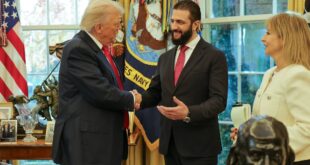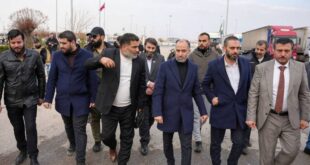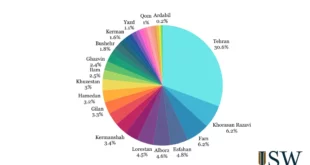KHARTOUM (AFP) — Former southern Sudanese rebels met leaders of the ruling party in Khartoum on Saturday for the first time since a peace deal was signed last year to end Africa’s longest running war.
Leaders from the Sudan People’s Liberation Movement, including First Vice President Salva Kiir, were holding talks with National Congress Party (NCP) leaders amid SPLM complaints that Khartoum was stalling implementation of the January 2005 peace deal.
“This is very important in the history of Sudan and in the history of the relationship between the NCP and the SPLM,” SPLM spokesman and general secretary Bagan Amum told AFP. At an opening ceremony for the closed-door talks, Kiir and former arch-foe President Omar Beshir expressed hope for a swift resolution of outstanding problems for the Comprehensive Peace Agreement.
Following the signing of the deal, the SPLM joined a national unity government in 2005, ending the 21-year-old war between Beshir’s Islamist regime and the mainly Christian southern rebels that killed 1.5 million people and displaced four million.
Addressing the two parties’ leaderships, Kiir expressed his hope of improving the often fraught relationship between the NCP and the SPLM and building confidence.
He named the chief problems as “the slowness in implementation of the Abyei protocol, slowness in the redeployment of [government] forces [from south to north] and the slowness in the demarcation of boundaries” between the south and north.
The central oil-rich territory of Abyei continues to be one of the main stumbling blocks in the north-south deal because of a dispute between the Arab Misariyah and African Dinka Ngok tribes over ownership of the region.
The Misariyah and the NCP have rejected boundaries proposed by an international commission while the Dinka — to which Kiir belongs — insist the area is part of south Sudan.
The International Crisis Group think-tank said in a recent report that “the NCP’s actions regarding Abyei are a blatant violation of the CPA, creating perhaps the most volatile element of the entire agreement right now.” About 50 Dinkas staged a demonstration outside the opening ceremony shouting their support for the peace deal and calling for a swift resolution of the Abyei issue.
A referendum on secession is due to be held in the south in 2011 in line with the peace deal, with oil wealth in the meantime to be shared and concessions awarded by a joint oil commission. Most oil fields lie in the south.
Senior NCP member Ghazi Salaheddin Atabani said that during the talks, expected to last two or three days, his party and the SPLM would “do some stocktaking and review the successes and failures of the last phase of the implementation of the agreement.”
“This is crucial for us in order to see how we proceed from here,” he told AFP. “We expect to get high marks on the implementation but there are other ways which are problematic.” “Our job will be to define those and work out a means whereby we can strengthen our cooperation and get over the difficulties.
“There are a number of issues, mainly related to security arrangements, related to wealth sharing. I guess the question of Abyei is a little bit problematic.” The SPLM’s Amum added: “There are a number of issues in the CPA that have not been implemented properly, Abyei is one of them, and many others.”
 Eurasia Press & News
Eurasia Press & News


